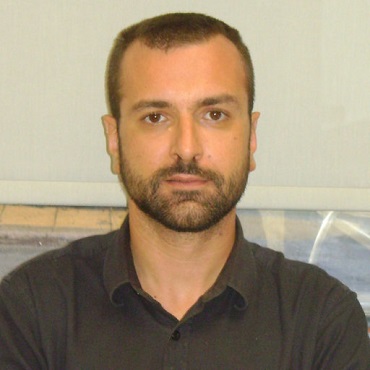Scientific Program
Keynote Session:
Title: Pediatric vegetarian diets are healthful, nutritionally adequate, and may provide health benefits in the prevention of obesity
Biography:
Joycelyn A.M. Peterson is a registered dietitian, presently professor and Director of Nutritional Sciences Program at Morgan State University, Baltimore, Maryland. Previously chair of Nutrition and Dietetics, Department and Dietetic Internship Director at Oakwood University, Huntsville, Alabama and was associate professor, chair of the Department of Family and Consumer Sciences at University of the Southern Caribbean (USC), Trinidad and Tobago, West Indies for over 5 years.
Abstract:
Pediatric Vegetarian Diets Well-planned vegetarian diets are appropriate for individuals during all stages of the lifecycle, including pregnancy, lactation, infancy, childhood, and adolescence. Vegetarian Diets in Perspective: According to a nationwide pollin 2016, approximantely 3.3% of American adults are vegetarian or vegan and about 46% of vegetarians are vegan. Plant- based diets are becoming well accepted. The American Institute for Cancer Research encourages a plantbased diet. The 2015-2020 dietary Guidelines for Americans recommend a veretain approach for the National School Lunch Program.
Title: Diet nutrition and prevention of type 2 diabetes
Biography:
Vidushi Agrawal has completed DHMS, HMD and MSc DFSM from IGNOU, India. She is a registered homeopath, dietician & nutritionist by qualification. She is actively and dedicatedly practicing dietetics & nutrition only, since 2008. After years of practice of homeopathy, she realized there was a maintaining cause always which would slow down or create an obstacle in the healing process. Hence, through observation and clinical trials, she came up to a strong belief that the maintaining cause was none other than lifestyle & food. After that there was no looking back and today, she is practicing the concept of “alkaline diet” for her patients, which have given 100% results with those patients who follow it as per her instructions.
Abstract:
Globally Type 2 diabetes is considered as the most common disease, India being the Diabetes capital of the world with 49% of diabetics being in India. Type 2 diabetes mellitus and its precursor, insulin resistance are considered to be metabolic states characterized by impaired regulation in the delivery, transport, and or storage of energy. However, is that The Real Truth? We will try and understand at the end of the presentation Nutritional Recommendations – long recognized as an important aspect of diabetes mellitus treatment – has been an area of persistent controversy, particularly regarding the proportions and types of nutrients to be consumed. Nutritional Recommendations have changed Drastically for Diabetic Patients especially over the past 10 years or a little more. The objective of Dietary Recommendation is primarily: (1)First most important being to understand are the changes brought about by the genetic modification in plants & their effect on Diabetes as a disease (2)Their relationship to Old and Current Lifestyle (3)Remove Misconception regarding various foods & bring out actual facts (4) Dietary recommendations to be flexible, , less time consumable in their preparation, easily available, less expensive & more nutritionally rich (5) Nutritional interventions should concentrate on reducing known risk factors for cardiovascular diseases, maintaining glycemic control without endangering the quality of life, health and safety of the patient. The mail objective of this presentation is to review, examine and understand various studies to explore relationship of Type 2 Diabetes with different dietary habits / patterns / and practices. Stakeholders should encourage patients to understand the importance of diet which forms 70% for the efficient control of the disease and also Physical Activity which occupies 30% of the place. This would help in Disease Management, Appropriate Self Care, and Better Quality of Life.
Oral Session 1:
- Nutrition & Disease Management | Nutrition in Cancer Care | Nutritional Supplements

Chair
Vidushi Agrawal
Riddhi Vinayak Multispeciality Hospital, India
Title: Valorization of cheese whey to nutraceuticals, employing biosciences
Biography:
Antonios E. Koutelidakis earned his PhD on Human Nutrition from the Department of Food Science and Technology of the Agricultural University of Athens (2010). He earned a MS in Human Nutrition (2007) and a BS in Food Science and Technology from the Agicultural Univerity of Athens (2005). His research interests are focused on bioactive compounds of functional foods and their role on health promotion and diseases prevention.He has done 22 publications at international journals, 7 chapters in books and 39 presentations at Greek and international conferences.
Abstract:
The recent industrial demand for the production of nutraceuticals such as carotenoids and other metabolites like ergosterol that could find several applications in industrial food sector has increased interest employing biosciences principles in their production processes. So, potential production of bio-carotenoids, ergosterol and glucose rich streams using a low cost agroindustrial by-product stream cheese whey was studied. Cheese whey derived from different cheese making processes, from Aegean islands-Greece was enzymatically hydrolyzed using commercial β-galactosidase (from Aspergillus oryzae), aiming at producing a unique hydrolysate rich in glucose.
Title: Hypernutrition in the supplement industry
Biography:
Sara D. Garduno-Diaz has a background in nutrition with a PhD in Nutrition and Food Science from the University of Leeds, UK; She has worked for several EU-funded research projects and was awarded research grants from CONACYT (Mexico) and the BBSRC (UK). She currently works as Nutrition Consultant for companies in Germany, Kuwait, England, Canada and the USA. Dr Diaz sits on the editorial board of various international journals, is the author of several peer-reviewed publications and books. Her research interests include the dietary patterns of migrant populations and their impact on health, as well as investigating the environmental factors that influence food selection.
Abstract:
Overall micronutrient status at the different stages of life should be viewed as a continuum; too often only specific nutrients are targeted and discussed separately from both a scientific and a public health perspective. Given the significant impact of deficiencies of key micronutrients, supplementation with multiple micronutrients may be a feasible public health strategy; however, developers of these supplements tend to aim for elevated dosages attractive from a marketing perspective but lacking evidence-based science to support them. A nutrient supplement company should undertake regular self-inspections in order to check the implementation and compliance with best practices and to propose and implement any remedial actions when necessary. As of the date of submission of this work no best practice laws for the development of nutrient supplements are enforced and the implementation of procedures to ensure the quality of a product remain at the discretion of the producer. Such practices are discussed here with an emphasis on the dangers of hyper nutrition from overdosing on dietary supplements.
Title: Association between frequency of food consumption and histopathological prognosis of papillary thyroid cancer
Biography:
Lara Clarisse de Lima Silva is specialist in Clinical Nutrition and has completed his Master at the age of 31 years from Diagnosis and Nutritional Intervention at University Federal of Rio Grande do Norte, Brazil.
Abstract:
Papillary thyroid cancer (PTC) has a good prognosis, but about 30% of individuals with the disease may develop more aggressive tumors. However, the mechanisms that lead to greater aggressiveness in PTC are not clear. In this purpose, the objective of this study was to investigate the association between the frequency of food consumption and the predictors of tumor histopathological prognosis of PTC. Forty-seven individuals with PTC had their eating habits investigated by a semi-quantitative Food Frequency Questionnaire (FFQ), focusing on the food or food group previously associated with TC. Foods consumed more than 1x / week by at least 50% of the patients were individually investigated for associations with the predictors of PTC histopathological prognosis: invasion, extrathyroidal extension, multicentricity, lymph node metastasis and tumor size.
Title: The epidemiological studies of beta trace protein as an early predictor endogenous marker for renal damage
Biography:
Mudher Khudhur Mohammed has completed his B.Sc in Pharmacy and M.Sc. in Clinical Chemistry at the age of 30 years He received his PhD from Babylon University/ College of medicine, Iraq. Currently he is the Director of Alfadhil-Babil Institute, for Research and Development Services. He has published 2 papers in reputed journals.
Abstract:
Chronic kidney disease (CKD) considered one of the most serious diseases that are strongly correlated with high morbidity and mortality. This study aimed to assess beta trace protein (BTP) via serum level measurement as an early predictor endogenous marker that response to renal damage or decrease in renal function. Serum level of creatinine and cystatin C were measured for comparative performance study. A case control study of 150 patients in two age groups: the pediatric group from 6 to less than 19 years old children, and the adult group from 19-70 years old. They were classified into three groups: 50 (29 males and 21 females) patients of type 1 and type 2 diabetes mellitus, 50 males renal transplant patients and 50 (28 males and 22 females) chronic kidney disease patients due to other than diabetes as an underlying cause. The results were compared with 50 (32 males and 18 females) apparently healthy used as controls. The results were revealed: Serum concentration of BTP was significantly increased (P < 0.05) in all patients groups when compared to control group, with a significant response concerning early stages of CKD It may be a useful and reliable serum marker for identifying the magnitude of renal dysfunction in patients with CKD and may have its place beside serum cystatin C and creatinine as an alternative endogenous marker of GFR.
Title: The epidemiological studies of beta trace protein as an early predictor endogenous marker for renal damage
Biography:
Haneen Mohanad Mohammed has completed her M.B.Ch. B in Pathology from Arab Board of Health Specializations, Iraq. She is the Assistant Director of Alfadhil-Babil Institute, for Research and Development Services.
Abstract:
Chronic kidney disease (CKD) considered one of the most serious diseases that are strongly correlated with high morbidity and mortality. This study aimed to assess beta trace protein (BTP) via serum level measurement as an early predictor endogenous marker that response to renal damage or decrease in renal function. Serum level of creatinine and cystatin C were measured for comparative performance study. A case control study of 150 patients in two age groups: the pediatric group from 6 to less than 19 years old children, and the adult group from 19-70 years old. They were classified into three groups: 50 (29 males and 21 females) patients of type 1 and type 2 diabetes mellitus, 50 males renal transplant patients and 50 (28 males and 22 females) chronic kidney disease patients due to other than diabetes as an underlying cause. The results were compared with 50 (32 males and 18 females) apparently healthy used as controls. The results were revealed: Serum concentration of BTP was significantly increased (P < 0.05) in all patients groups when compared to control group, with a significant response concerning early stages of CKD It may be a useful and reliable serum marker for identifying the magnitude of renal dysfunction in patients with CKD and may have its place beside serum cystatin C and creatinine as an alternative endogenous marker of GFR.
Keynote Session:
Oral Session 1:
- Nutrition, Health and Wellness | Nutritional Epidemiology | Diet and Obesity

Chair
Mudher Khudhur Mohammed
Babil Health Directorate, Iraq
A PHP Error was encountered
Severity: 8192
Message: trim(): Passing null to parameter #1 ($string) of type string is deprecated
Filename: pastconference/past-program-schedule.php
Line Number: 354
Backtrace:
File: /efsdata/meetingsint-com/application/views/pastconference/past-program-schedule.php
Line: 354
Function: trim
File: /efsdata/meetingsint-com/application/controllers/Pastconference.php
Line: 128
Function: view
File: /efsdata/meetingsint-com/index.php
Line: 317
Function: require_once
Title: Alkaline diet – An answer to most modern lifestyle diseases
Biography:
Vidushi Agrawal has completed DHMS, HMD and MSc DFSM from IGNOU, India. She is a registered homeopath, dietician & nutritionist by qualification. She is actively and dedicatedly practicing dietetics & nutrition only, since 2008. After years of practice of homeopathy, she realized there was a maintaining cause always which would slow down or create an obstacle in the healing process. Hence, through observation and clinical trials, she came up to a strong belief that the maintaining cause was none other than lifestyle & food. After that there was no looking back and today, she is practicing the concept of “alkaline diet” for her patients, which have given 100% results with those patients who follow it as per her instructions.
Abstract:
Alkaline diet is to prevent the body from going into a more acidic state. The alkaline diet first detoxifies the body, then creates and maintains a more alkaline environment in which the body can heal itself. While following the alkaline diet, one must ensure that he / she must consume about 80% of alkaline foods to achieve a correct health balance (80/20 ratio). The alkaline diet isn't to undertake and raise the pH of the blood. The entire reason of the alkaline diet is to anticipate the body from having to do the directing! So that the minerals stay where they are, they are not leached out into the blood to make blood alkaline. We know the pH of blood is 7.35 – 7.45 (slightly alkaline) & healthy pH of urine is 7.00 – 8.00 (slightly alkaline). The biggest misconception is that the alkaline diet is trying to raise the pH of the blood or urine. However, the fact is alkaline diet is trying to neutralize the extra acid that is produced on account of different activities in the body like breathing, metabolism, walking, running, mental activities, polluted environment around, acidic foods etc, hence preventing the leaching out of minerals into the blood to maintain the level of pH. This in turn prevents various metabolic disorders in the body as whatever is required in their specific place, stays there. Example: calcium in bones. It not only prevents, but in my clinical practice I have experienced that when alkaline diet is followed, there are even reversal of non–surgical diseased conditions like diabetes, osteopenia, osteoporosis, female hormonal issues and in a certain conditions, the alkaline diet has also prevented operations & amputations, which I would like to prove by case presentations.
A PHP Error was encountered
Severity: 8192
Message: trim(): Passing null to parameter #1 ($string) of type string is deprecated
Filename: pastconference/past-program-schedule.php
Line Number: 354
Backtrace:
File: /efsdata/meetingsint-com/application/views/pastconference/past-program-schedule.php
Line: 354
Function: trim
File: /efsdata/meetingsint-com/application/controllers/Pastconference.php
Line: 128
Function: view
File: /efsdata/meetingsint-com/index.php
Line: 317
Function: require_once
Title: Adipocytokines as a risk factor for coronary artery disease and its relationship with obesity
Biography:
Maytham Hussein Tarrad AL-Dualism holds a bachelor’s degree in 2009 from the University of Baghdad College of Medical Technology, Department of Pathological analysis and currently studying MSc in clinical Biochemistry branch research stage in the college of Medicine University of Babylon.
Abstract:
Objective: Obese, normal weight patients with coronary artery diseases and obese, normal weight controls, we sought to investigate the association of a set of adipocytokines, including total adiponectin, leptin and plasminogen activator inhibitor-1(PAI-1), with coronary artery diseases events in obese and normal weight.
Design: Case control study; samples of obese and normal weight with and without coronary artery diseases were selected to detect the levels of adipocytokines and proinflammatory mediators.
Subjects: 50 patients with coronary artery disease divided to groups (25 obese) and (25 normal weight) who diagnosed coronary artery disease in cardiac care center (CCU) and 50 healthy men divided to groups (25 obese) and (25 normal weight) with nearly same ages were determined by enzyme-linked immunosorbent assay, spectrophotometer (UV-Vis) and other instruments which provide by biochemistry department in Babylon University/college of medicine.
Measurements: Adiponectin, leptin, plasminogen activator inhibitor-1(PAI--1), insulin resistance, total lipoprotein, HbA1C and BMI.
A PHP Error was encountered
Severity: 8192
Message: trim(): Passing null to parameter #1 ($string) of type string is deprecated
Filename: pastconference/past-program-schedule.php
Line Number: 354
Backtrace:
File: /efsdata/meetingsint-com/application/views/pastconference/past-program-schedule.php
Line: 354
Function: trim
File: /efsdata/meetingsint-com/application/controllers/Pastconference.php
Line: 128
Function: view
File: /efsdata/meetingsint-com/index.php
Line: 317
Function: require_once
Title: Identification of main human urinary metabolite produced after genipap (Genipa americana L.) juice intake
Biography:
Livia Dickson has completed her PhD in food science, nutrition and applied biotechnology in 2018, from the University of Montpellier, France and Federal University of Para, Brazil. She has published part of her PhD results in Nutrients Journal and is awaiting corrections for the publication of the second paper.
Abstract:
The present study used the untargeted metabolomics analysis to evaluate the metabolites produced after drink a single 500-mL dose of genipap juice and identify biomarkers of exposure. Food biomarker discovery is essential to develop new strategies to reduce the risk factor of noncommunicable diseases such as cardiovascular diseases, cancer, and diabetes. Genipap (Genipa americana L.) is a native fruit from Amazonia that contains bioactive compounds with a wide range of bioactivities. The urine of sixteen healthy free-living men before and after drink genipap juice was analysed by liquid chromatography-high-resolution mass spectrometry. XCMS package was used for data processing in the R environment and t-tests were applied on log-transformed and Pareto-scaled data to select the significant metabolites. The principal components analysis (PCA) score plots showed a clear distinction between experimental groups. The value of the area under the curve (AUC) of the receiver operator characteristic (ROC) curve validated the identified biomarkers. Thirty-three metabolites were putatively annotated. Thirteen were putatively characterized as iridoids metabolites, and together with phenolic derivatives forms were the main metabolites identified. For the first time, the bioavailability of genipap iridoids after human consumption is reported. These molecules may be used as a specific biomarker of genipap consumption. The human exposure to genipap reveals that this fruit trigger effects on metabolic signatures. Our results give an essential contribution to the knowledge about the bioavailability of bioactive compounds presents in genipap. It can be used in epidemiological studies to help to understand the natural use to treat some diseases.











